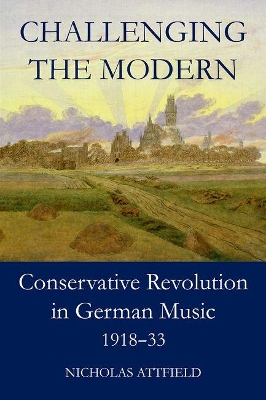British Academy Monographs
1 total work
This book challenges commonplace conceptions of musical conservatism during Germany's Weimar Republic (1918-1933). Its primary goal is to offer scrutiny of uncritical links often made by musicologists and historians between musical conservatism and political conservatism of the era. It does so through a critical and nuanced application of the term 'conservative revolution', as used throughout the Weimar era and popularised in its historiography after 1945.
After an opening discussion of the time-honoured notion of 'Weimar Culture' and its tendency to obscure parts of the contemporary cultural landscape (and their relation to modernity and modernism), the book presents four contrasting studies, each focused on a particular 'conservative' musical figure or movement, and informed by readings of a complex discourse drawn together from contemporary journals, speeches, letters, scores, and archival sources. The first two studies address Thomas Mann and
his relationship with Hans Pfitzner in the aftermath of the First World War, and Alfred Heuss's 1920s tenure as editor of Schumann's Zeitschrift fur Musik. The second two studies turn to the so-called 'Bruckner-Cult' of the Weimar era and its representations of its central composer as medieval
mystic, and the work of August Halm - another dedicated Brucknerian - within the German Youth Movement, as defined by the radical pedagogue Gustav Wyneken. An extended epilogue considers advocacy for these Weimar-era 'revolutionary conservatisms' under the Nazi regime after 1933.
After an opening discussion of the time-honoured notion of 'Weimar Culture' and its tendency to obscure parts of the contemporary cultural landscape (and their relation to modernity and modernism), the book presents four contrasting studies, each focused on a particular 'conservative' musical figure or movement, and informed by readings of a complex discourse drawn together from contemporary journals, speeches, letters, scores, and archival sources. The first two studies address Thomas Mann and
his relationship with Hans Pfitzner in the aftermath of the First World War, and Alfred Heuss's 1920s tenure as editor of Schumann's Zeitschrift fur Musik. The second two studies turn to the so-called 'Bruckner-Cult' of the Weimar era and its representations of its central composer as medieval
mystic, and the work of August Halm - another dedicated Brucknerian - within the German Youth Movement, as defined by the radical pedagogue Gustav Wyneken. An extended epilogue considers advocacy for these Weimar-era 'revolutionary conservatisms' under the Nazi regime after 1933.
